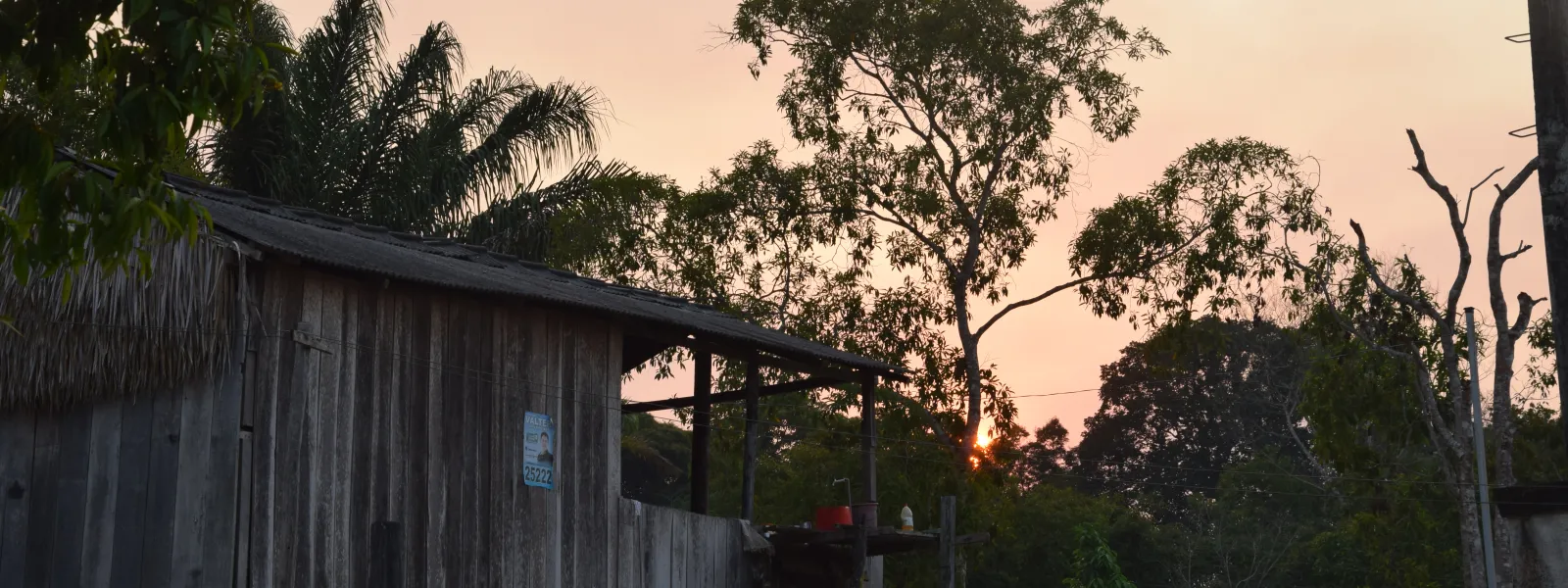
Meeting the Munduruku, sharing the lessons of Belo Monte
Beneath a thatched-roof hut along the Tapajós River, Munduruku people from communities across this region of pristine Amazon rainforest gathered for a general assembly.
There were tribal elders and children, mothers and fathers, representatives from NGOs and government bodies.
They came together to discuss problems, and to find solutions. They came to chart a course forward that would enable them to continue to live and grow in harmony with the natural world.
October’s assembly was their first meeting since the announcement of the cancellation of the Tapajós Dam; its license was denied due to the severe environmental impacts it would cause.
The rejection was a triumphant victory for the movement to protect Brazil’s Amazon, after years of disappointment and defeat caused by the nearby Belo Monte Dam. Yet, touting energy and economic gains, the Brazilian government plans to build dozens more large dams in the region.
I was there because of Belo Monte: to share stories, strategies, and lessons learned from our advocacy for the people of the Xingú River who have been impacted by the dam.
With me I brought a team from Climate Reality who produced a short documentary to share these stories with the world.
While the fight for the people of the Xingú has been long, we remain committed to achieving justice for them.
By taking their case before the Inter-American Commission on Human Rights, we intend to influence decision-making in Brazil and discourage the implementation of more large dams in the Amazon, including those planned for the Tapajós River basin.
The devastation caused by Belo Monte has become a cautionary tale for neighboring tribes like the Munduruku.
Because of the harm done to the people and life of the Xingú, the Munduruku understand exactly what they have to lose if the dam on the Tapajós were to happen.
They would lose their homes, their sacred sites, and their connection to their ancestors.
They would lose their river.
Like the Xingú is to the Kayapo and Juruna people, the Tapajós is to the Munduruku.
It is their highway and their supermarket; a sacred waterway, and a divine gift.
They thank their gods for the bounty provided by their healthy jungle home, for the tinguejada (fish), and for all that the river gives them.
It was an honor to be present to witness the strength and unity of the Munduruku people. It was humbling to join my voice with theirs.
I hope that the voices of the Munduruku are heard. I hope their territory is respected, and the dam and other development projects stopped for good.
And I hope the Brazilian government learns the lesson that countless indigenous people already have—large dams must stay out of the Amazon!
Rodrigo da Costa Sales

Rodrigo da Costa Sales is a Brazilian attorney that worked in AIDA’s Human Rights & Environment Program. He has a masters in International Human Rights Law from the University of Notre Dame. He has worked at the Inter-American Commission of Human Rights, the Inter-American Court of Human Rights and with various organizations dedicated to the protection of victims in Brazil.
